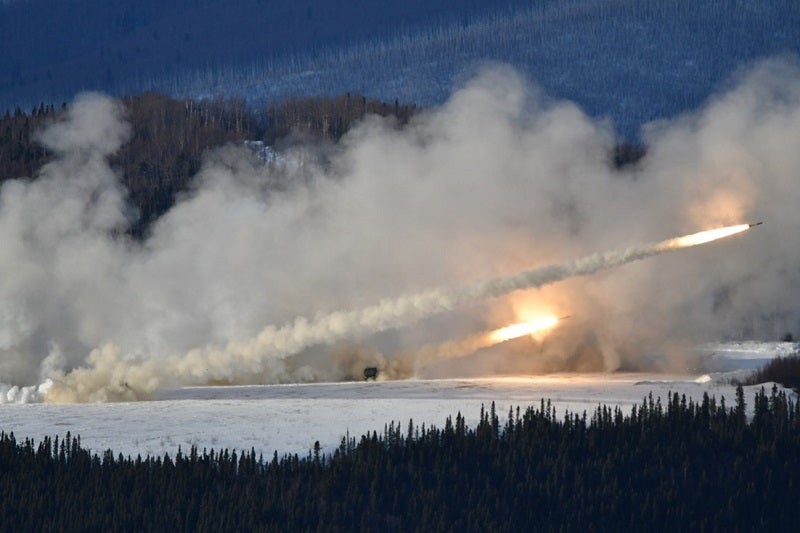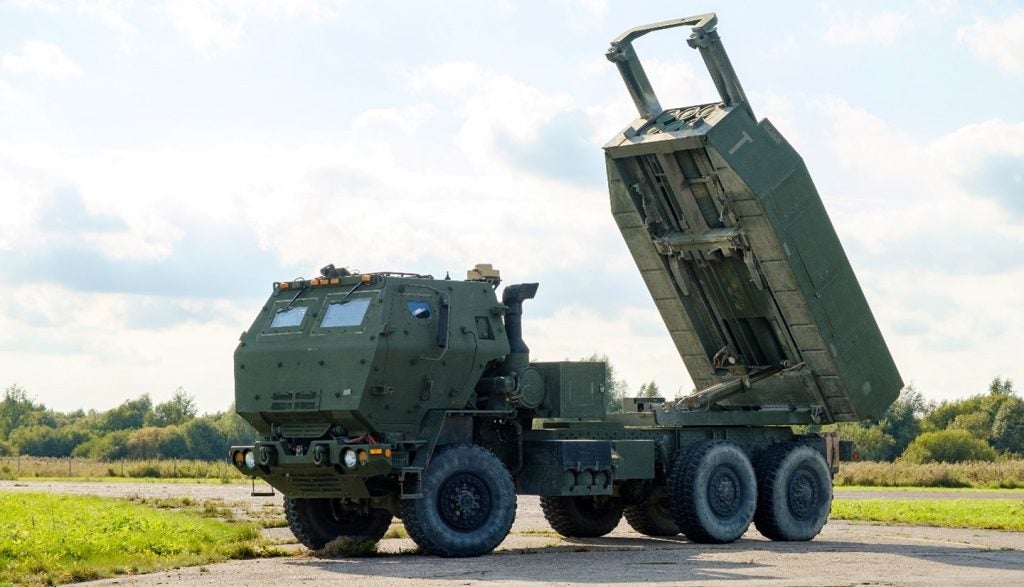Right off the heels of a renewed offensive in Ukraine’s northeastern Kharkiv region, the German Defence Minister Boris Pistorius and the US Defence Secretary Lloyd Austin announced the joint delivery of three High Mobility Artillery Rocket Systems (HIMARS) to Ukraine’s Armed Forces.
These systems are mobile artillery rocket systems offering the firepower of Multiple Launch Rocket Systems (MLRS) on a wheeled chassis.
HIMARS engage and defeat artillery, air defence concentrations, trucks, and light armour and personnel carriers, as well as support troop and supply concentrations.
The system launches its weapons and moves away from the area at high speed before enemy forces locate the launch site.
The US State Department approved the Foreign Military Sale worth $30m while the Defense Security and Co-operation Agency went on to notify Congress of the decision.
The two defence leaders met in Washington on the day the Russian offensive began to discuss the delivery as well as the wider security environment ahead of the next Nato alliance summit to be held in the US capital in July 2024.
Kharkiv offensive
Designed to take as much territory as possible before the influx of Western military aid, while also spreading Ukrainian troops more thinly, Russia’s new offensive comes at an opportune time.
Washington overcame its political paralysis to provide a $60bn support package to Ukraine after months of stalling during which GlobalData intelligence observed that Russia had gained the initiative for the moment.
GlobalData Defence Analyst James Marques offered his thoughts on the new offensive:
“What’s going on near Kharkiv is interesting, and it could go a few ways. It may be a little time yet as events develop to see whether Russia will fully commit to a new offensive, or if they are just trying their luck to see if there’s a weakpoint they can exploit,” he observed.
“Kharkiv is a huge city, but no matter what, that many men demands Ukraine’s attention and they will be forced to split troops between there and the Donetsk area.”
But what about the HIMARS?
Ukraine has made good use of HIMARS since the outset of Russia’s full scale invasion of the country just over two years ago.
“In the summer of 2022, HIMARS were mainly used to attack Russian ammunition and fuel depots that were relatively close to the front,” Marques suggested. “Up until then Ukraine didn’t have the right kind of weapons to target them so they were quite safe.
“Since then they’ve been used for attacking command posts and headquarters, Russian artillery, a whole range of things. The ATACMS [Army Tactical Missile Systems] missile is even longer range and has a large warhead, and has been used to hit airfields, for example.”

Dutch open-source intelligence and defence analysis group Oryx found that Russian forces destroyed one 227-millimetre M142 HIMARS system and severely damaged two others – the same number of HIMARS Germany has bought from US stockpiles to replenish Ukrainian artillery capability.
It should be understood that this is a replacement delivery, an attempt to re-build rather than add to Ukraine’s existing artillery capabilities.
“In recent months, as Ukraine has been struggling with a lack of equipment to counter Russian drones, the enemy have been more able to scout and quickly target Ukrainian equipment further behind the frontline.
“So now a handful of HIMARS have been confirmed as lost to Russian strikes,” Marques identified. “So far, these new units bought by Germany on Ukraine’s behalf seem to be like-for-like replacements of lost trucks.”
Although the US has renewed its growing military assistance to Ukraine earlier this year, and while the supplies it offers will have a considerable impact, this US-German replacement delivery is not sufficient. It indicates Western attempts to maintain Ukrainian resistance rather than meeting its growing demands.









